#Honorifics
Text

1K notes
·
View notes
Text

sanji and zoro's shared tendency to only ever use the honorific -kun for each other specifically for the purpose of being cunts will never stop being so so funny to me. (i noted a couple previous instances of this here.)
for example here sanji is going "marimo-kun... died in the line of duty with the one piece right before his eyes...."
671 notes
·
View notes
Text
more context for 악어(acau)'s translation (troubles? future troubles?)!
@blockgamepirate mentioned pronouns in context of translation in a reblog and that got me thinking about a bunch of things lmao but mostly about 반말 (banmal).
악어 decided really early on into his experience with the translator to try to use banmal bc he felt like the translator was picking up on it better, and he probably thought this because of two things:
banmal is usually shorter than 존댓말 (jondaemal) which is the polite/default way of speaking. and when i say default i mean my parents sometimes use it to refer to each other. it's more than just politeness, it's also a certain amount of respect? with younger people (high school, college, maybeeee graduate student age) people tend to use banmal with friends. older people use banmal to talk to children, and children use banmal except when talking to older people. i think the easiest way of showing just how much shorter banmal is, is to use "안녕" (korean "hello") as an example. "안녕" (annyeong) is actually banmal! you absolutely wouldn't say this to someone you've just met - you would say "안녕하세요" (annyeonghaseyo) which is jondaemal. but do you see how the second is three syllables longer? there's more of a margin of error with three more syllable and that's why the machine translator doesn't work as well with jondaemal.
The most casual way of speaking banmal uses pronouns. korean doesn't have gendered pronouns really, and the pronouns it does have seem. rude? generally? children use pronouns a lot and adults use pronouns when speaking to children but otherwise.... if you're not friends (and young honestly have yet to find an midsized (40+) adult regularly use pronouns) calling someone "you" is like. an insult. it works (that is, it doesn't feel like an insult) in 악어's stream for me because it felt like he was speaking in a significantly simpler/slower register after a while? like the register you'd use for kids. but i did want to put it out there! because if you're trying to learn korean through 악어's stream, you're probably listening to him use banmal! and that's just something to be aware of.
more pronoun thoughts! in terms of gender - korean doesn't have gendered pronouns. the closest you get in third person is something like "that girl" so machine translate will almost never get it right. it will default to masculine (in my experience) or the first person ("i" "me") so that's something to keep in mind. honestly my dad often defaults to masculine third person pronouns because he forgets pronouns are gendered in english and that there's more than one of them lmaooo. korean does gender relationships A Lot (oppa is the one that most people will know - brother from female speaker to older male listener) but pronouns wise there's. no gender oop.
i just wanted to put this out there because as 악어 becomes more a part of the qsmp community, we'll probably slowly pick up on the more regular patterns of awkward machine translation from an east asian language to english, and more specifically from korean to english. and if it's confusing that's ok! assume good faith - 악어 from what i can tell isn't a streamer who'll use insults a lot or curse, and his normal way of speaking to his audience is very soothing/polite/jondaemal, so i hope that people keep watching him throughout this introduction period!
#qsmp 악어#qsmp acau#qsmp translations#korean language#honorifics#cultural difference!#in the language!#qsmp korea
412 notes
·
View notes
Text

78 notes
·
View notes
Text
I’ve noticed I have a bit of pet peeve, lol.
Specifically involving the use of Your Majesty and Your Highness.
Your Majesty is used for the ruling monarch, while Your Highness is used for the monarch’s heir and relatives of the royal family. But people have been referring to Lucifer as Your Highness.
Charlie is Your Highness. Lucifer is Your Majesty. Likewise, Lilith is/was also Your Majesty.
Just… Just a little tip. A fun fact.
#maybe this is my autism showing I dunno but like. Lucifer and Lilith are the ones in charge. not Charlie.#hazbin hotel#honorifics#royal titles#I have a full list about noble titles and their honorifics#it’s weird lol
146 notes
·
View notes
Text
Y'know, gender doesn't have to make sense all the time
By example, today I'm a guy
I mean, kind of a guy
And at the same time I want to use he/him pronouns, I wanna be a princess and use neutral honorifcs!
And it's great, stay awesome folks~
(This does apply if you're trans binary, cis, or have a "simple" gender identity too, as much as it does if you have a super confusing or genderfluid/multigender gender identity [like me], try to use whatever terms you like!)
#trans#nonbinary#transgender positivity#genderfuck#genderfluid#multigender#genders#pronouns#honorifics#weird gender shit#trans issues#advice
131 notes
·
View notes
Text
it's so weird and irritating how certain descriptors are close to fitting, but they're not quite there
they are so close! to how i want to be called or described, but they're just... not... how i want to be called or described
so,
shoutout to those who don't feel described by mr, ms or even mx
shoutout to those who don't feel described by woman, man, enby, any of the sort
shoutout to those who don't feel described by boyfriend, girlfriend, partner, etc
shoutout to those who don't feel described by cute, pretty, beautiful, handsome, the list goes on
and to those who feel iffy or uncomfortable by those terms, especially those who feel they have no other choice but to go by them
i see you, i understand. <3 i'm always welcome to and hoping to hear some new or different terms :)
#trans#nonbinary#genderqueer#gendered language#gender term#descriptors#compliments#honorifics#i don't even know how to tag this#think this is just my nb otherkin experience tbh#trans experience#nonbinary experience#genderqueer experience#queer#lgbtq#gender neutral#gender neutral terms
22 notes
·
View notes
Text
I need otherkin prefixes!! Theres mr, miss, mx, but I want one for alterhumans specifically. For example we could use animal genus for therians/mythical creature/dinos, etc. Anyone got some suggestions???
edit: honorifics was the word I was thinking of lmao my bad
69 notes
·
View notes
Text
#genderfaun#queer#nonbinary#genderqueer#lgbtqia#xenogender#boyflux#genderfae#genderfloren#genderflux#genderfluid#demiboy#demigirl#demigender#girlflux#honorifics#agender#gender identity#polls#tumblr polls#lgbt poll#lgbtq
23 notes
·
View notes
Text
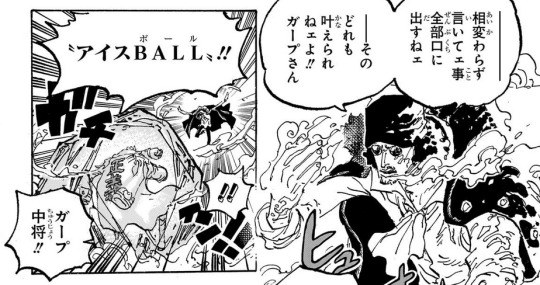
after joining the blackbeard pirates, kuzan still addresses garp respectfully as garp-san
149 notes
·
View notes
Text
You've heard of Mr. Self-Destruct, now get ready for
Ms. Self-Destruct
Miss Self-Destruct
And most importantly
Mx. Self-Destruct
33 notes
·
View notes
Text
Kitten play I can handle, but if they hit us with the “I was born 5 months before you so Call me Phi/Phi King” lil’ exchange imma keel over and die. I barely survived the “Call me Hia Win” attack and the Great honorifics battle of Semantic Error as it is.

#bed friend#bed friend the series#between us#netjames#kinguea#winteam#Bounprem#semantic error#the parks#the fujoshi eye twitch is reserved for honorifics#honorifics
93 notes
·
View notes
Text
usually after watching a few episodes on a kpop group i can easily tell which members are older and which are younger but THAT SHIT DOES NOT APPLY TO SEVENTEEEEEEEEEN since everyone just SPEAKS BANMAL without even using honorifics.....HONORIFICS!!!!! one of the most important aspects of korean social conventions! they use them so rarely i eventually just have to google their ages smh
#going seventeen#seventeen#svt#korean linguistics#koreanlanguage#korean language#south korea#korean#svt woozi#wonwoo#hoshi#vernon#seungkwan#choi seungcheol#jeonghan#joshua#mingyu#svt jun#the8#dk#svt dk#svt dino#honorifics#kpop#kdrama
17 notes
·
View notes
Text
Patrick Hennessey
Doctor of Medicine (MD)
Member of the Royal College of Surgeons (MRCS)
Licentiate of the King’s and Queen’s College of Physicians of Ireland (LKQCPI)
#i figured it out!#literally spent way too long googling doctorate letters#Patrick Hennessey#too many doctorates#alphabet soup#dracula daily#honorifics#post-nominal letters#dr john seward#john seward#jack seward#dr jack seward
207 notes
·
View notes
Text
Asian Honorifics & BL - a quick & dirty guide, with examples
You ready for another one of my long broad brush linguistics in BL posts? (As always check the comments for people better than me correcting or adding content. Also I will be updating this post as long as Tumblr lets me fiddle with it.)
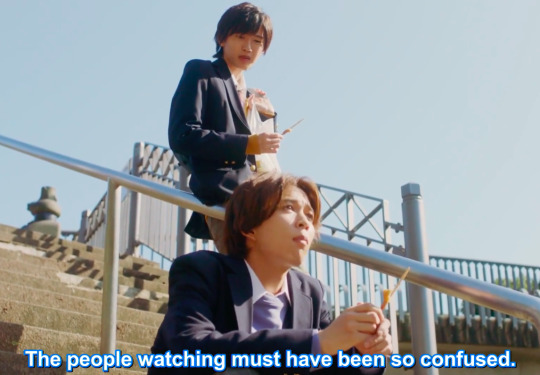
Codicil: I’m a dilettante who loves the cultural side of linguistics, and loves to help people understand BL better via language. I attempt to explain things using very simplistic terms and an anthropological approach, I am aware that it’s a lot more complicated. But I’m doing my best.
Codicil 2: This is meant to help BL watchers, not to guide tourists who in intend to travel to these countries.
Honorifics in General - the concept
Honorifics = a title or word implying or expressing status, politeness, or respect.
Many Asian languages employ honorifics in a filial manner (distinguishing status along generational lines with regards to birth year, professional relationship, and parental state). Basically calling someone who is NOT an actual blood relation “older brother” (e.g. Korean hyung or oppa) or “younger sibling” (e.g. Thai nong), or auntie (see many Indian or Latin American cultures). These can also be a kind of endearment in romantic relationships.
The closest most westerns can think of this is that the honorific is used as a way to delineate an intimate relationship/friendship across an age gap, but its implications are not always intimacy. (Except when they very much are, see oppa.)
You may be familiar with a phrases like “we’re so close she’s like my sister” or “he’s like a brother to me.”
However, because most westerners exist in relationships to peers only under the broad umbrella term friend, we will only use “like my sister” or “basically my brother” when someone is particularly dear to us but not sexually.
In most Asian languages, honorifics are more codified. So there is a status conferred by age which dictates honorifics be used. They’re mandatory for communication. Intimacy levels between individuals CAN impact this, but are not the primary decider on what honorific is used under most circumstances. Position in society is.

So these terms are often defined (or even translated) with sibling language. See early Thai BLs translate phi as bro, but that’s not strictly correct.
There are also often honorifics for larger age gaps (so more like auntie or uncle, delineating relationships like adult neighbors or a friend’s parents, or parents’ friends).
And there are honorifics for people in authority positions (like doctors, teachers, bosses) who are usually older (but not always). These honorifics are employed in the arenas of education, hobby activities (like ceramic classes or martial arts) and the workplace.
For many, informality of older to younger will be characterized by use of casual (or rude) language and lack of honorifics (from the older person to the younger one). So the older character will have one mode of address and way of talking, while the younger character exists in a more formal register when they are speaking back to someone older.
In other words, an older person can speak informally to a younger one, but not the reverse. (Yaja time excepted...)

Complexity of Honorifics as Elements of Language
Honorifics can function as titles:
Honorifics can be translated as/like titles. This is is the kind of thing we are most familiar with: Mister, Mrs, Mz, Miss, Master, Mistress, Sir, Madam, Ma’am are all, technically, honorifics. So are certain forms of address and royal titles, “The honorable” for example. Anything you might put in front of a name to add formality in English probubly qualifies as an honorific.
Honorifics can function as pronouns:
Or modes of address. For example the title boss, in English can also be used to call or refer to someone directly. “Hi, boss!” or “my boss” or “the boss says.” Honorifics serve the same function. In this way they can become pronouns. You can, in Korean, just call someone “hyung” it acts as the you pronoun for direct address. And often they can also be used in the 3rd person. So my “hyung” did such and such. This is why hyung = brother in a lot of translations. Because English uses brother in much the same way, it can act as both a 2nd or 3rd person pronoun. (Rarely first, but that’s an issue with English, that our first person pronoun is so inflexible.)
In Thai you can refer to a friend as phi (you pronoun in direct address, or use it as a she/he/they pronoun in third person) or you may refer to yourself as phi (using it as an I pronoun). In other words, phi can entirely replace a person’s name in all linguistic uses.
He/She/They goes to the store = phi goes to the store (when talking about my older friend to someone else)
I go to the store = phi go to the store (when talking to a younger person about my own actions), and
you go to the store = phi go to the sore (when talking to an older friend about something they are going to do - direct address)
Honorifics are also suffixes:
In Korean and Japanese honorifics are also attached to names in the form of suffixes. See the Japanese section. (Also sometimes prefixes, argh.)
Honoring is also attached to particles:
In Thai, polite particles confer respect levels as well, which means they also contain within them certain aspects of status and honorifics. See the Thai section.
The best way to understand honorifics in BL is by example.
Ready?

Korean - Honorific titles: Hyung, Noona, Oppa & Beyond
I’m starting with Korean because it is the most spoken and understood by westerners these days. I can only address this as a layperson who watches too many Kdramas.
Korean names in brief:
In Korea names are said family name first (what we call surname or last name) and then given name second (what we would call first name). Usually the family name is single barreled or one syllable, but the given name is double barreled or two syllables. So: Chu Sang Woo = Chu (family name) Sang Woo (given name, always said together). This is why I will usually refer to BL characters by their first name as a combo, e.g. SangWoo. In formal address, however is would be Chu SangWoo-ssi. Usually the entire name is said (see comments). Even when JaeYoung is being rude he usually says “Chu SangWoo.”
Korean honorifics you’ll hear:
Hyung | hyeong 형 - is said by a younger male when addressing an older male. I will use the term Hyung Romances for BLs that feature a younger seme pursing and older uke because...
Noona | nuna 누나 - is said by a younger male when addressing an older female and is responsible for the accepted series category “Noona romances” which are dramas that feature a younger boy pursuing an older woman.
Oppa 오빠 - is said by a younger female when addressing an older male. Also used by girlfriends addressing their boyfriends, or wanna-be boyfriends. Under a romantic context oppa is considered somewhat cringe/cheesy/cutsie.
Unni | eonni 언니 - is said by a younger female when addressing an older female.
Sunbae | seonbae 선배 - is said by a younger person to an older person (gender neutral) and is more formal. It can be used in the workplace and it mostly about seniority and less familial.
Hoobae | hubae 후배 - is said to/of a younger person, either across a generational gap, or within a workspace environment, again this one is about seniority and less familial.*
Although an older person’s filial and social responsibility to a youngster is always in play.
In Kpop you’ll hear sunbae used a lot by younger (say 4th gen) groups when referring to older groups within the industry. Or when talking about Kpop idols who they don’t personally know (or are so big they’re nervous about any assumption of intimacy). On reality shows like Queendom or Kingdom it’s particularly telling. Some of the funniest moments of Kingdom Legendary Wars is any time Penal (an American from BTOB - an older v established group) tries to convince the youngsters, some of them 10 years his juniors, to use casual language (drop honorifics). The poor things get SO confused.
BL Deeper Meanings behind Hyung
Okay so the best show to watch for this one is Semantic Error.

SangWoo starts out calling JaeYoung sunbae and rarely goes less formal. Technically sunbae is polite, but also slightly insulting in a university narrative of this type. Let me try to explain. Because as they become more intimate, combative or not, friends or frenemies, SangWoo should switch to using hyung, but he pointedly does NOT.
JaeYoung, on the other hand, always uses extremely informal (to the point of rude) language with SangWoo. (Culturally, he allowed such informality as he is SangWoo’s senior both at university, and in age). But you can watch him get annoyed that SangWoo insists on sticking to sunbae, to the point where he demands SangWoo use hyung.
Then after that, anytime SangWoo does use hyung JaeYoung totally melts for it, because it was hard fought and won, and it means something powerful and significant is shifting in their intimacy as a result.

During the mutual kissing at the bar scene, Semantic Error drops yaja time on us. Yaja time is a sanctified reversal of honorifics that essentially allows for a younger person to speak their mind informally and without repercussions (or supposedly so). It’s a kind of way to flirt and tease, but also somewhat taboo and titillating as a game to play when tipsy. You get yaja time in bars/clubs sometimes, like happy hour. If you watch the final episode of Kpop reality show I-land you’ll see a real word example of yaja time in action amongst the contestants, it’s adorable and very funny.
Semantic Error uses yaja time as an opportunity for drunk SangWoo to finally talk about his real feelings, without the pressure of linguistic formality.
They also use it for JaeYoung to drop the sluttiest most flirtatious hyungs in the history of all hyunging. Seriously, the boy is dripping seduction with that one world. Why? Because HE CAN. He is making the formality itself a kind of kink.

You can watch these two on the promo circuit attempt yaja time and even though they have an easy brotherly relationship, you can still see how uncomfortable it makes Jae Chan in particular.
Other honorific play in Semantic Error:
The girl who is interested in dating SangWoo calls him oppa, and ALSO requests to use a nickname+oppa with him (the nickname means lettuce). That is pretty blatant flirting. But note she specifically asks if she is allowed to do so?
Later when JaeYoung confronts her and stakes his claim, notice the thing he really wants corrected is her language with SangWoo? He wants her to go all the way beyond sunbae to formality by using the honorific suffix 씨 (ssi). But there’s also more lettuce wordplay here (I think) because he isn’t insisting she use SangWoo’s full name.
“You should call him Chu-ssi” which is translated into English as “Mr Chu.”

A word on oppa and queerness.
Because the implication is that the person saying oppa is female, you will rarely hear boys use this term for their boyfriends (even if they are out gay, unless they are femme and/or cultivating the association for a very specific and culturally subversive of kinky reason).
Exception: non native speakers who are happy to fart around with us and the Korean social structure. So early on, NCT’s (Kpop monster group) Mark (Canadian) would refer to Yuta (Japanese) as oppa. I’m not gonna unpack their relationship, but trust me when I say, no native Korean idol would have ever done this, not right now in Korea’s current social state. Well... maybe Holland but that’s a whole other discussion.
To complicate matters Korean also uses honorific suffixes, but I’m not gonna go into them here. (Read more about Korean honorifics.)
Instead I’m gonna use Japanese to talk honorific suffixes. Ready?
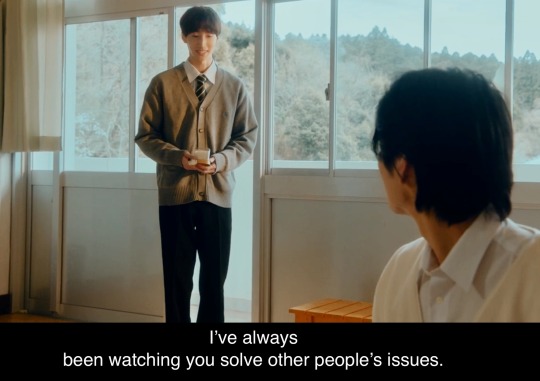
Japanese - Names & Honorifics: suffixes & titles
Like Korean, Japanese uses both suffixes and title honorifics. But I find the suffixes much easier to hear in Japanese than Korean, probubly because I’ve more experience with the language.
Note: As a foreigner in Japan I’ve alway found it best/easiest to refer to someone using surname-san.
Japanese names in brief:
Names are said family name first and then given name. But actually, given names are rarely, if ever, said AT ALL (after an initial introduction).
In BL dramas almost all character’s names and everyday use name will be the family name. (Children are different, but not many of those in JBL.) Teachers may refer to their students by given name-kun.
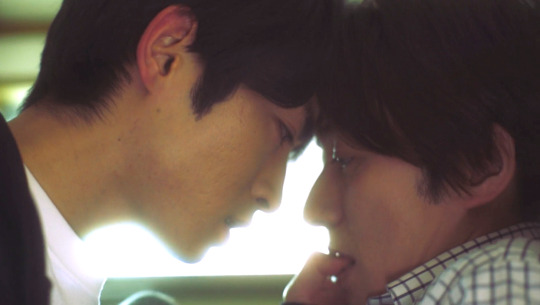
So in Old Fashion Cupcake Togawa is his family name (not given name). Nozue (also a surname) who is both older and Togawa’s boss, refers to Togawa simply as Togawa, with no honorifics, probubly because they are both adult characters and have been coworkers for so long, Togawa-kun would be... odd.
Togawa on the other hand, ALWAYS refers to Nozue as Nozue-san. Even in times of EXTREME intimacy the honorific -san is ALWAYS used.
We have no idea what the given names are for these characters because we never got to that point of intimacy in their relationship. In Japanese romances the given name is usually the ultimate intimacy and is not exchanged until well into a relationship, sometimes after sex or even after marriage. You can watch the delicate maneuvering around this aspect of intimacy in the kinky het drama Sweat & Soap (it’s not BL, but I still love it, on Viki.)
Japanese Suffixes you hear the most in BL:
-chan = is intimate and cute for children, or amongst female friends, or female family/intimates (like your grandma)
-kun = is for respected juniors, younger or junior co-workers, or young boys, and amongst friends
-san = is formal/polite and for general use, amongst friends, equals, strangers, and acquaintances
The best BL to watch to hear all three of these in constant use is Minato’s Laundromat.

Shin always calls Minato, Minato-san and gets very annoyed when anyone doesn’t do this who should (he want’s his man properly respected). Note that he puts Minato-san into his phone as Akira, tho... daring boy.
Asuka calls Minato: Akira-san, which he shouldn’t as a kid a generation younger than Minato. He gets away with it because he and Minato are from the same neighborhood and have similar open, friendly natures.
Minato, on the other hand, struggles with what to call Shin. Technically he should use Katsuki-kun or even Katsuki-chan (which is what he uses on Shin’s sister). Which is Shin’s surname + the suffix for a junior. But Minato is a causal person, so he never bothered with a suffix even at first. Now, informal language is fine from an older person to a younger one, if they have the right personality. But under BL circumstances, Minato’s lack of honorifics kind of gave Shin license to flirt. The moment Minato asked if he could use the nickname Shin he was a goner.
As Shin becomes more aggressive in his pursuit, Minato hops desperately between different suffixes to try to control the situation:
Shin (informal and friendly),
Shin-chan (diminutive, under this context = somewhat demeaning, considering what Shin wants from him), Minato is intentionally lowering Shin’s status and emphasizing his youth when he applies -chan,
Shin-kun (when he thinks Shin is mad at him, or in public, or when he is annoyed and wants to add formality and distance)
I talk quite a bit about this in my squee watch of this series.
Putting someone who should be (or is usually) address by one combo of name (first or last) + suffix into another, by changing either the name of the suffix or both, always has narrative significance for character development or plot or both in Japanese romances. Which is why you get more from the story if you train your ear to listen for these.

In the picture above, Takara is using -san for sarcasm and to gently chide Amagi. Usually he just uses Amagi with no honorific (they are the same age, and he is a curt characters) or Amagi-kun in public of for call/response address. He has moved to a higher level of formality for emphasis and to make a point in this scene. Communicating properly and avoiding conflict is a hallmark of his character, also (as the seme) he wants to control Amagi. This is all wrapped up in that personality and attitude. He is being teasing and sarcastic, but he is also stressing that this dialogue is important to him.
Read more on Japanese honorific suffixes here.
Japanese honorific titles you hear the most in BL:
Senpai (先輩、せんぱい) - senior colleague or classmate, roughly equivalent to the Korean sunbae or Thai phi
Sensei (先生、せんせい) - refers to teachers as well as people who are experts in their respective fields, like doctors, artists, professors, martial arts instructors, or lawyers
The best BL to watch for use of honorific titles in Japanese is... bet you thought I wasn’t gonna manage to shoehorn it in.... Seven Days!
*insert wild cheering*
Sereyo (younger) seems to relish and very much enjoy and flirt by using the honorific senpai with Yuzuru. It’s hard to explain, but the way Sereyo says "senpai” whenever they meet is very very... cute.
You can hear these characters use sensei when in archery practice. And you can hear use of some family suffixes and honorifics since we follow both characters back to their respective homes.

Sereyo calls Yuzuru, Yuzuru-san, which is Yuzuru’s GIVEN NAME + the honorific. This is unexpected because Yuzuru is his senior. He should call him by his surname + honorific: Shino-san.
But Sereyo has an issue, which is that Yuzuru has the same last name as his ex-girlfriend, who was also older. So in his previous relationship, Sereyo called his lover: Shino-san, and he doesn’t want to use the same exact name with his new lover, Yuzuru. So despite Yuzuru being his senior, he asks to use Yuzuru’s first name as a mode of address. Yuzuru being the kind of casual blunt personality he is, doesn’t mind the inherent informality and permits this right away.
More on Japanese honorifics here.
Mandarin Chinese Honorifics

Ho boy am I not going to climb into this one. But I will point out that to confuse matters many Chinese honorifics are actually also blood relation titles - 哥 ge (older brother) 弟 di (younger brother) - (like phi/nong, par/ar, hia/jay in Thai). In other words, the honorific actually is both brother (honorable title) and brother (actual word) AND will be applied to cousins. As in: the word for cousin is ALSO the same word as brother.
In Thai to clear up this relationship a character will often have to state it blatantly: "my real actual older bother, by blood, and not an older male friend” (since phi means both) and not a lover. See this grappled with as a jealously plot point in Star in My Mind.
But in some Chinese BLs they will also have to explain and distinguish actual blood relationships as different between cousins and siblings. You can watch Addicted deal with these nuances.
It should be noted for the BL crowd that Mainland Mandarin and Taiwanese Mandarin are ALSO different. So there are language nuances to Taiwanese BL that do not exist in Mainland BL (when it was around) and vice versa. And because Taiwan recognizes equal rights, there is also a whole adapted Chinese linguistic set around queerness.
I’m mentioning Chinese in this post mainly because it will come into play with Thai honorifics: hia & jie/jay 姐. Personally I struggle to even distinguish names let alone honorifics, I find Mandarin a particularly difficult language.
Thai - Honorifics, Pronouns, Particles & beyond phi/nong

I have quite a bit on Thai honorifics and their complexity plus how it relates to BL.
Thai Honorifics Between Ages in BL and real life
More on Thai Linguistic Registers - Particles & Honorifics
Thai Pronouns & Honorifics when Seme/Uke is Flipped
Sarcastic use of honorifics & polite particles in Thai
Linguistic Fun In Thai BL - couples
The Nu Diminutive in Thai
Touch & Daisy in Secret Crush On You - Queer Coded Language and 3rd Gender Identity
The most important thing to know, and how it’s different from Korean, is that phi & nong are gender neutral.
Also honorifics and politeness in Thai plays into both pronoun use and polite particles. Thailand does not have honorific suffixes like Japan or Korea, instead particles (which are kind of like spoken punctuation) come into play.
It’s complicated, in that there are a lots of ways to indicate relationships in Thai. But less complicated in that, at heart, gender doesn’t impact it as much as in Korean or Vietnamese. Instead, like Japanese’s -san, you can default to formal register by remembering to use khun (+ polite particles).
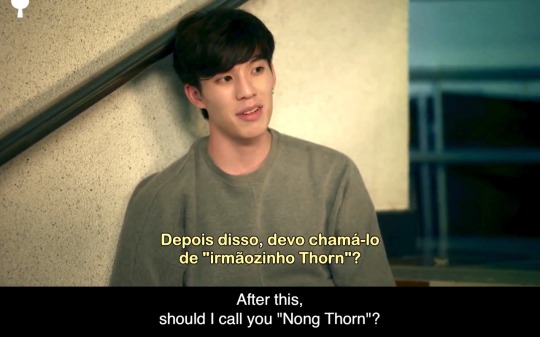
Loosely?
Phi = hyung, noona, unni, oppa, sunbae, or senpai, and its gender neutral.
Nong = hoobae or -kun or -chan, but is rarely used in direct address. Instead, informality in Thai is characterized by use of casual (or rude) language and lack of honorifics (from the older person to the younger one) + rude or informal particles. Nong is also gender neutral and can be used as you pronoun (rarely as I), or as a third person pronoun to refer to pets, or as a diminutive attached to a name, it’s... complicated.
Actually episode 10 of Love Mechanics plays with this. Vee whispers in Mark’s ear the equivalent to “Phi’Vee loves cute nong Masa.” Masa is Mark’s given name and it is Japanese because Mark is half Japanese.
But then, to tease him, Vee lowers his voice (Japanese men speak from low in the chest) and says: Masa-kun. Kind of the Japanese rephrase of the above.
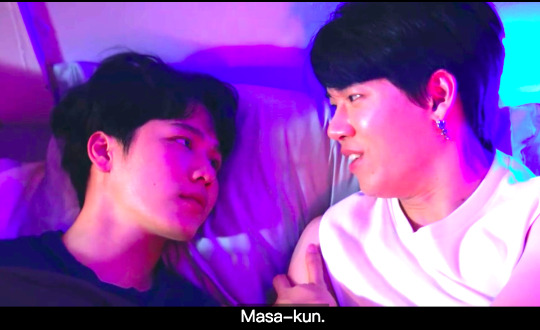
Hia = hyung/oppa (it may be used by a younger male or female but is only use on an older male) and specifically ties to Chinese heritage.
Jie/jay = noona/unni (it may be used by a younger male or female but is only use on an older female) and specifically ties Chinese heritage. It has also been coopted by the queer community and may be translated as “sis” under those circumstances. More about hia here.
Khun = -ssi or -san, and is a gender neutral formal address. It can be a title Khun + Name (first or last), an I/you pronoun, and also a proper name (ya, know, just for s&gs). Also in families that are more formal it is a mode of polite address for parents, Khun Maa for mother, Khun Paa for father.
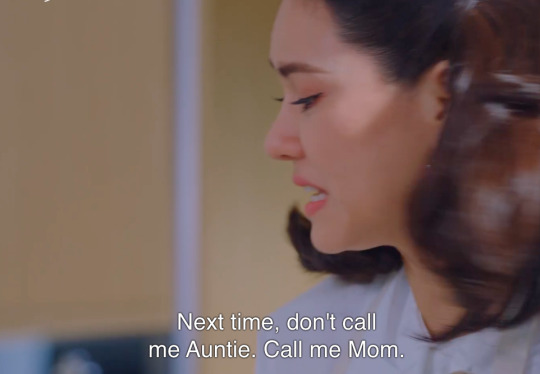
Vietnamese Honorifics
Vietnamese honorifics and modes of address are not my bailiwick but the amazing @squeakygeeky has been blogging a series around VBL linguistics and it’s queer struggles with pronouns because of bifurcation around gender.
Oh boy was this a lot. And I am sorry to @timelesstoothfairy who originally asked this question, I don’t think they realized what a can of worms it opened up.
Language, how is it SO MUCH FUN?
(source)
#BL language#bl linguistics#thai language#thai linguistics#asian honorifics#linguistic registers#honorifics#korean language#korean honorifics#japanese language#japanese honorifics#thai bl#japanese bl#korean bl#thai pronouns#thai particles#polite particles#Thai Honorifics#Thai Linguistic Registers#Linguistic Fun#chinese bl#addicted bl#addicted heroin#addicted the series#Star in My Mind#Japanese suffixes#seven days the series#Japanese honorific titles#Japanese honorific suffixes#ShinMinato
475 notes
·
View notes
